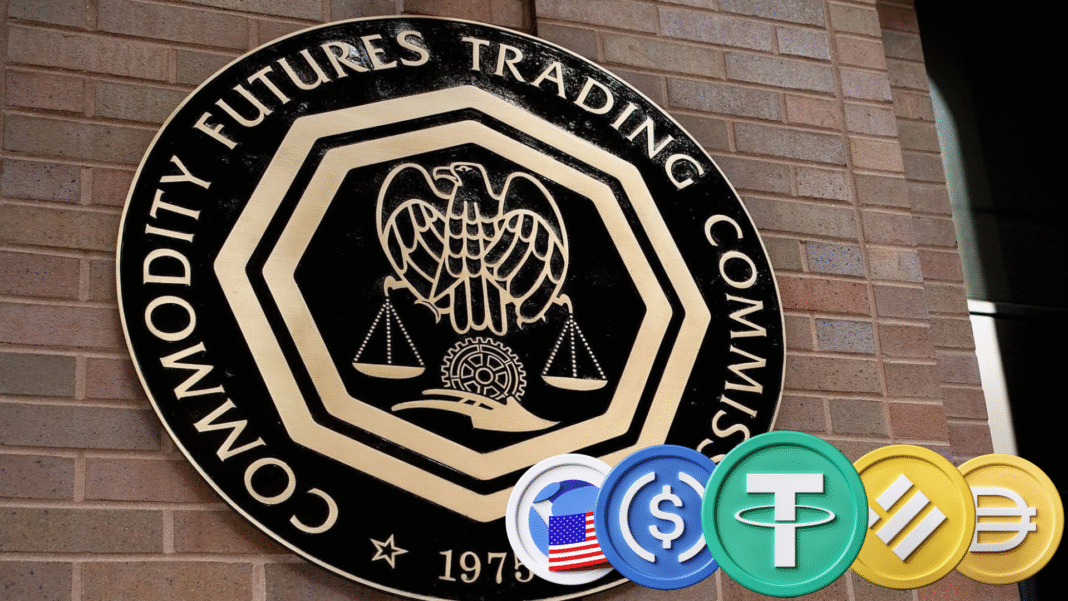The Commodity Futures Trading Commission (CFTC) in the United States is proceeding with a monumental plan to allow tokenized assets, like stablecoins, as justifiable collateral for cleared derivatives.
Acting Chair Caroline Pham announced on Tuesday that the agency will engage with the industry to collect public comment on the proposal until October 20.
If it is approved, stablecoins like USDC and Tether (USDT) would be treated the same as cash or U.S. Treasurys as justifiable collateral for derivatives.
This proposal follows Congress’s passage of the GENIUS Act earlier this year, which created a legislative framework for the adoption of payment stablecoins, but without addressing regulatory capacity yet.
Strong Support for CFTC’s Proposal
Notable figures within the cryptocurrency space quickly offered their support for the CFTC’s move, emphasizing the increasing acceptance of stablecoins as an alternative to traditional finance.
Circle Internet Group, which issues the USDC, also tweeted support for the legislation. According to its President, Heath Tarbert, the GENIUS Act establishes a straightforward path for U.S. stablecoin issuers to obtain certification and participate in traditional financial markets.
Tarbert further stated: “When trusted stablecoins are endorsed, they can help cut costs and reduce risk while always providing liquidity around the world.”
Also, Coinbase Chief Legal Officer Paul Grewal stated that tokenized collateral will serve to strengthen the U.S. derivatives market and enhance its competitiveness globally.
Ripple and Tether Highlight Market Efficiency Benefits
Ripple Labs and Tether, two significant players in the stablecoin ecosystem, also backed the CFTC’s initiatives.
Jack McDonald Ripple’s senior vice president of stablecoins, said the action would place stablecoins and their uses at the “heart of regulated financial markets,” increasing transparency and efficiency.
Executives stated that the CFTC’s certainty in regulation will advance adoption by institutional investors and promote stability in the markets.
Also Read: U.S. CFTC Launches New Crypto Sprint Initiative to Explore Integration of Spot and Futures Trading
Legislative and Regulatory Framework Taking Shape
The GENIUS Act, which was signed into law by President Donald Trump in July, serves as the legislative framework for stablecoin incorporation into the financial systems of the United States.
While the law lays out parameters of usage for payment stablecoins, regulators continue to finalize rules to implement the act for practical use.
The CFTC’s current effort to establish rules and guidance is an important step and aligns with the purpose of implementing the provisions of the law in derivatives markets.
By operating within the framework of Congress, the CFTC is indicating it is willing to modernize derivatives trading legally.
Also Read: Crypto Exchange Gemini Files Complaint Against CFTC, Alleging Seven-Year “Lawfare” Campaign
Broader CFTC Efforts to Shape Crypto Regulation
The CFTC’s decision to permit stablecoins as acceptable collateral falls in line with the agency’s positioning to take a larger role in the oversight of digital assets.
On August 29th, it issued new guidance that allows foreign cryptocurrency exchanges to service U.S. clients under its Foreign Board of Trade (FBOT) framework, provided they meet certain standards of company registration, liquidity, and compliance, UnoCrypto reported.
Notably, on September 6th, we reported that the CFTC, along with the Securities and Exchange Commission (SEC), considered the creation of continuous, 24/7 markets for all securities, similar to the crypto industry’s continuous trading.
Though complex to set up, these measures are indicators of regulators’ desire in the U.S. to make traditional markets faster, more accessible, and more innovative, and do so at the same pace as what has happened in crypto markets.


